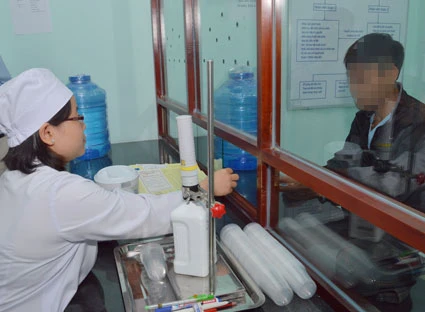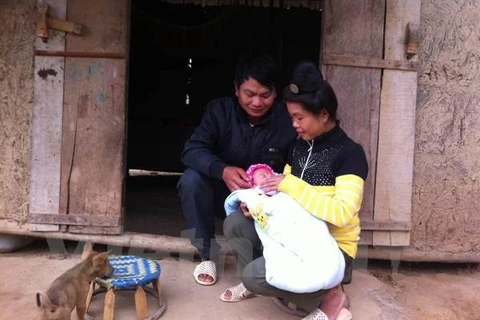Hanoi (VNA) - The Vietnam Administration of HIV/AIDS Control (VAAC) under the Ministry of Health (MoH) has unveiled a plan to pilot the community-based HIV testing and counseling programme from 2015 to 2017.
The programme, from the fourth quarter of 2015 to the end of the third quarter of 2017, will be firstly implemented in Hanoi, Ho Chi Minh City and Dien Bien, Nghe An, and Thanh Hoa provinces to study the feasibility of community-based HIV testing models.
Its goals are to increase uptake of HIV testing among at-risk individuals who may not have access to health services or hard-to-reach groups and develop a guideline for proper HIV testing and counseling in community settings.
The ministry will provide training for non-specialist health workers and adopt a mechanism for coordination between community-based organisations and clinics that perform HIV confirmatory tests and those offering antiretroviral (ARV) treatment.
A system for monitoring and evaluating the non-clinical HIV testing results will also be launched.
Three rapid HIV testing models in community settings will be introduced under the programme, including mobile HIV testing and counseling, HIV testing and counseling at rural healthcare units and at community-based organisations.
According to the VAAC, Vietnam has had about 227,000 people living with HIV and more than 76,000 HIV carriers have died by the end of July this year.
The country is home to over 1,100 HIV testing and counseling units and 98 laboratories that perform HIV confirmatory tests where around 2 million samples are collected annually.
It is estimated that about 200,000 people living with HIV are aware of their status while the remaining stay unaware, posing high risks of HIV transmission in society.-VNA

























